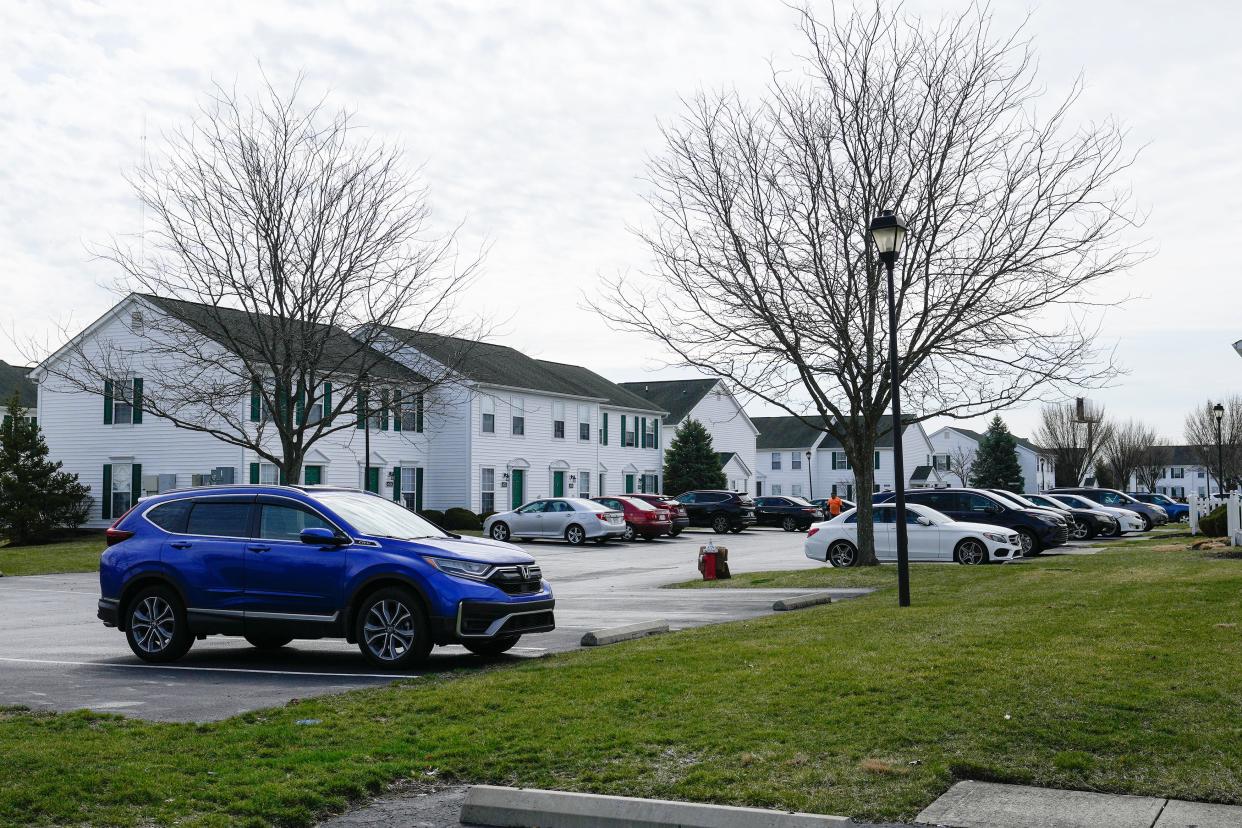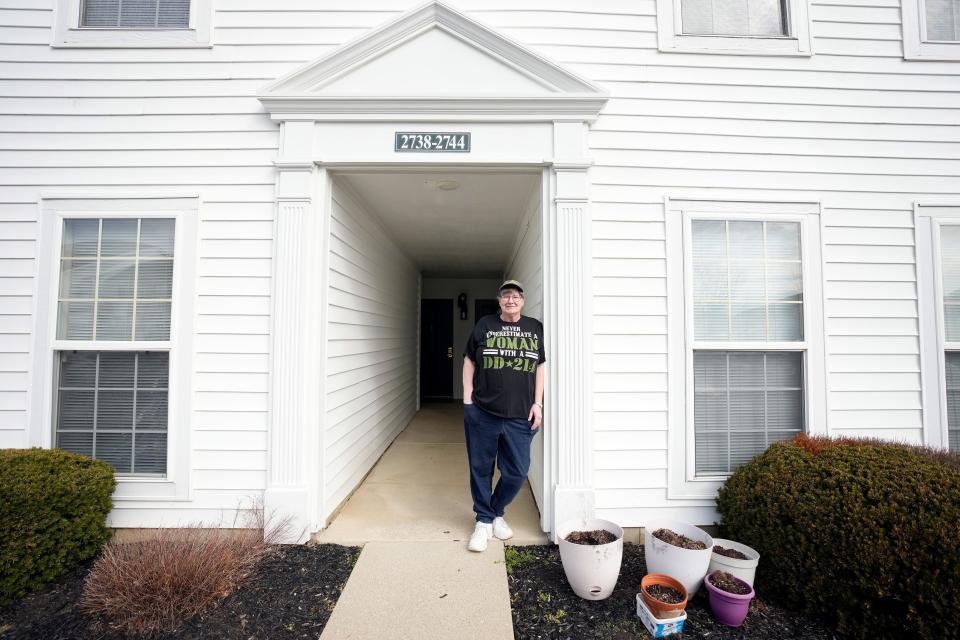Landlord backpedals after income-discrimination issue raised at Columbus apartments

Hours after The Dispatch published a story about source-of-income discrimination at an apartment complex on Columbus' Northeast Side — and three days after the City Attorney's office sent a letter to the private-equity company that owns the development — the company told tenants they can continue to use federal Section 8 housing vouchers to pay rent.
This may allow 61 voucher-holding families to stay in their homes at Morse Glen apartments — although uncertainties remain.
Connecticut-based Hamilton Point Investments, which bought the 254-unit property in November, had sent letters in January to tenants stating, “We will no longer be able to accept Section 8 as a form of income.”
The policy violated a 2021 city criminal ordinance that prohibits landlords from discriminating based on tenants’ source of income, according to City Attorney Zach Klein's office, which contacted Hamilton Point on Monday after The Dispatch inquired about the case.
On Thursday, residents received new letters from the landlord on their doors stating, “We accept all sources of income, including Section 8. We are not asking Section 8 residents to vacate the apartment community. We encourage all residents and applicants to utilize any … source of income they have when qualifying to live at our community, including Section 8.”
“I hooted and hollered,” said Sue Clark, 68, an Army veteran who has lived at Morse Glen using a voucher since 2011. “I said I wasn’t going to go down without a fight.”

But Donna Mayer, a staff attorney at the Legal Aid Society of Columbus who is representing Clark and several other residents, said she is cautious about the development. She urges tenants not to sign any new leases until they have consulted a lawyer.
Mayer wondered whether Hamilton Point will impose additional requirements that disqualify voucher-holders.
“If you have to qualify by saying you have $3,000, Section 8 tenants will not have that,” she said.
Hamilton Point did not respond to The Dispatch’s questions for this story or the previous story published on Thursday.
Housing choice vouchers are an anti-poverty program administered federally by the Department of Housing and Urban Development and locally by the Columbus Metropolitan Housing Authority. Voucher holders pay a third of their income in rent, while the federal government pays the rest.
A Columbus ordinance that went into effect in July 2021 prevents landlords from refusing to lease to tenants based on their source of income — including vouchers and other assistance programs.
The City Attorney’s office said that after sending Morse Glen’s lawyers a letter on Monday, it received a response on Thursday, stating that property management would retract its earlier letter and abide by the city’s fair housing laws.
“The City will not pursue legal action at this time, but will continue to monitor the situation to ensure this landlord complies with all fair housing laws,” spokesperson Pete Shipley said.
Citizens should reach out to the Legal Aid Society of Columbus to report instances of income-based discrimination, Shipley added.
Several Morse Glen residents questioned why it took so long for Hamilton Point to be forced to rescind its Section 8 policy, given local law.
Legal Aid first heard from Morse Glen residents about the letter from Hamilton Point at the end of January, according to Mayer. However, Legal Aid did not reach out to the City Attorney’s office until last week, according to Legal Aid managing attorney Melissa Benson.
That is when the City Attorney's office first learned about the case, according to Shipley.
Loni Taylor, 68, a voucher holder who has lived at Morse Glen since 2012, said she had begun packing up boxes in preparation to leave. The Thursday letter was welcome news, but she said she’s still nervous and is not unpacking just yet.
“I may be poor financially, but I’m rich in grace,” she said. “I never wanted to be seen as a sob story, but as an advocate for the injustice this management was attempting to impose on Section 8 residents.”
Peter Gill covers immigration and new American communities for The Dispatch in partnership with Report for America. You can support work like his with a tax-deductible donation to Report for America here: bit.ly/3fNsGaZ.
pgill@dispatch.com
This article originally appeared on The Columbus Dispatch: Hamilton Point backpedals after income-discrimination issue raised

